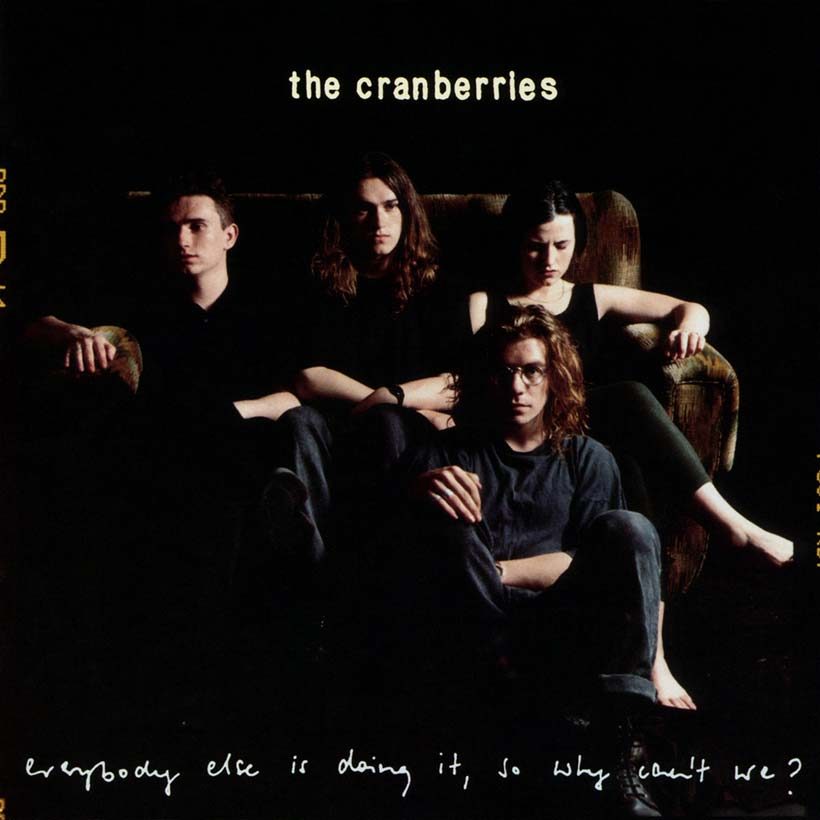Everybody Else Was Doing It, But The Cranberries Did It Better
Storming both the US and UK charts, The Cranberries’ ‘Everybody Else Is Doing It, So Why Can’t We?’ proved that, actually, they could.

In the pre-internet scheme of things, a debut album traditionally built a band’s reputation through critical acclaim and led to commercial success a little further down the line. Yet, in The Cranberries’ case, their resplendent debut, Everybody Else Is Doing It, So Why Can’t We?, bucked the trend when it topped the UK charts, moved over five million copies in the US, and turned the unassuming Irish quartet into bona fide superstars.
Listen to Everybody Else Is Doing It, So Why Can’t We? on Apple Music and Spotify.
The statistics don’t lie, but they don’t tell the whole story, either. The Cranberries’ rise to stardom required patience and fortitude. Formed in 1989 by bassist and guitarist brothers Mike and Noel Horgan, drummer Fergal Lawlor and vocalist Niall Quinn, they were initially a quirky indie-pop concern, The Cranberry Saw Us, until the late Dolores O’Riordan replaced Quinn and the Limerick-based outfit adopted the more user-friendly mantle of The Cranberries, 12 months later.
The band first made headway when an embryonic demo tape featuring early versions of future signature hits “Linger” and “Dreams” sparked sustained interest from UK-based record companies. Next came a low-key, self-released debut EP, Uncertain, during 1991, but O’Riordan and company attracted more widespread attention through well-received radio sessions for Dublin-based 2FM’s Dave Fanning Show and for BBC Radio 1’s John Peel in the UK.
With Rough Trade Records boss Geoff Travis taking over managerial duties, and a deal with Island Records in the bag, The Cranberries paired up with producer Stephen Street (The Smiths, Blur, The Psychedelic Furs) to record their debut album during 1992.
The disc they emerged with showed that the Limerick quartet were onto something special. Despite its sardonic title, Everybody Else Is Doing It, So Why Can’t We? had little in common with either the US alt.rock or proto-Britpop outfits in vogue at the time of its release, on March 12, 1993. Instead, Everybody Else Is Doing It… proffered singular, ethereal pop harking back to the vintage indie of The Smiths or The Sundays, with its engaging highlights “I Still Do,” “Waltzing Back,” the elegiac ballad “I Will Always” and the enticing “Put Me Down” dominated by elusive, chiming chords and O’Riordan’s haunting, acrobatic vocals.
Everybody Else Is Doing It… garnered its fair share of acclaim on release, with heavyweight magazines Rolling Stone and Q both awarding it four stars, and the Los Angeles Times’ Mario Munoz picking up on the album’s “Celtic-flavoured folk tinged with gospel sensibilities” and astutely commenting that “Dolores O’Riordan’s arresting voice is the driving instrument in this beautifully understated debut.”
Island wisely chose the record’s twin artistic peaks, the slow-burning “Dreams” and the seductive “Linger,” as the album’s trailer singles, yet despite the favorable critical notices, neither caught fire the first time round. However, after The Cranberries embarked on a lengthy tour with Suede, they came to the attention of MTV, who duly granted the “Dreams” and “Linger” videos heavy rotation.
Accordingly, both the singles and their parent album enjoyed a remarkable second life, with “Linger” and “Dreams” both peaking within the UK Top 30 during the first half of 1994, and Everybody Else Is Doing It… not only re-entering the charts, but going on to top the UK album chart in the early summer of 1994. No longer the underdogs, The Cranberries’ profile was raised further by a highly successful opening slot on a comeback tour by returning 80s superstars Duran Duran. With Everybody Else Is Doing It… on course for well-deserved multi-platinum success, the group set their sights on the stratosphere with their sophomore release, No Need To Argue.
The super deluxe edition of Everybody Else Is Doing It, So Why Can’t We? can be bought here.












